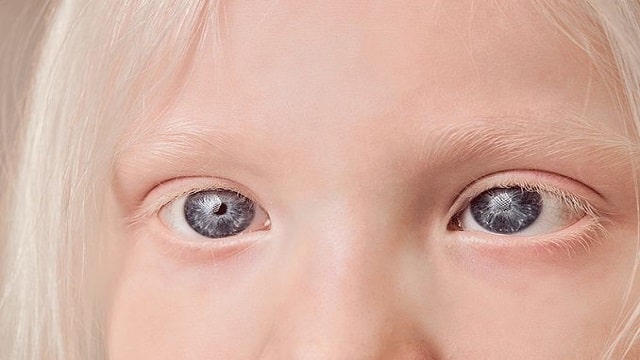Albinism or albino is a condition that causes sufferers to look “different” compared to most people. The most basic difference that can be seen is physical appearance. Albino sufferers often look paler white with a faded hair color. This is because albinism occurs due to a disruption in melanin production.
Albinism occurs because there is an abnormality in melanin production. This then causes sufferers to lack or even have no melanin pigment at all. This pigment plays an important role in determining the color of the skin, hair, and iris of the eye. In addition to differences in skin and hair color, albinism can also increase the risk of eye problems. Related Article: Albinism Can Cause Vision Problems
Causes of Eye Disorders in Albino Sufferers
Albinism can affect anyone and occurs because there is an abnormality in the melanin pigment in the body. In the human body, this pigment plays a role in determining the color of the skin, hair, and iris or iris of the eye. In addition to causing paler skin and hair, this disorder can also increase the risk of eye problems in people with albinism.
Not without reason, melanin actually also plays a role in the development of the optic nerve which affects the function of vision. That is the reason why people with albinism are prone to experiencing visual impairment or other eye problems. People with albinism are prone to decreased visual function due to problems with the retina, nystagmus, eyes are more sensitive to light, nearsightedness, crossed eyes, astigmatism, farsightedness, and the most severe is blindness. Related Article: Child Born As Albino, What Is The Reason?
In addition to eye problems, albinism can also cause someone to be susceptible to other serious health problems. People with this disease are said to be more susceptible to skin cancer. There are several things that can be the cause, one of which is too much exposure to sunlight. Lack of melanin causes the body to be unable to “make peace” with sunlight.
Under normal conditions, melanin plays a role in protecting the skin from UVA and UVB radiation found in sunlight. This means that low melanin production in people with albinism causes a low ability to protect the skin. In addition to the risk of skin cancer, people with albinism are also said to be more susceptible to stress and depression.
This happens because the appearance of sufferers of this disease is different and often triggers a lack of self-confidence and even disrupts their quality of life. In some cases, people with this disease may also experience bullying from people around them. If left alone, albino sufferers can experience serious mental problems.
Unfortunately, albinism is a disorder that cannot be treated. However, it does not mean that sufferers cannot live a normal life. Albinism also cannot be prevented. The risk of this disease is higher in people who have a history of the same disorder in the family.
Still curious about albinism and what health problems can arise in sufferers? Try asking a doctor.

